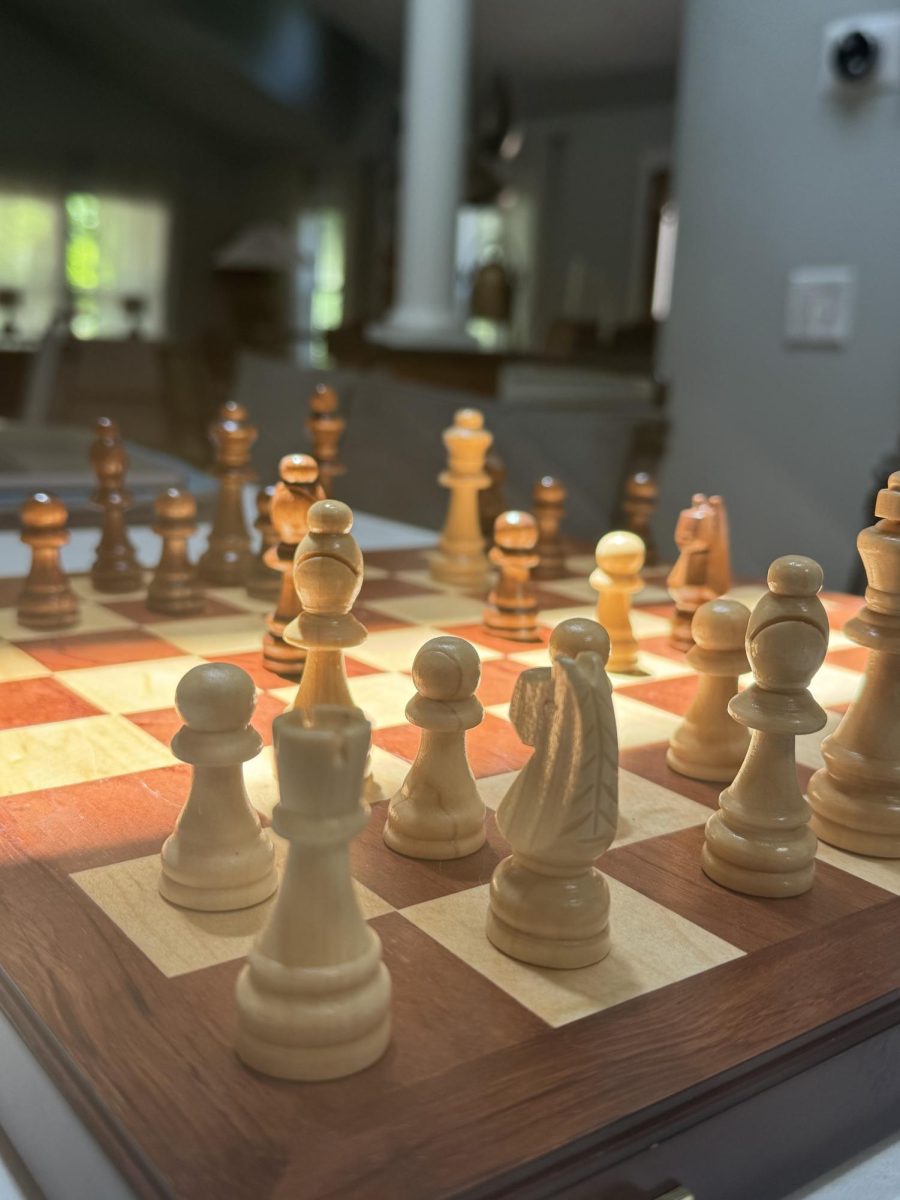Just like on a chessboard, every move in life makes a difference. Chess has been a phenomenon that has fascinated minds worldwide for over a millennium. While chess is known as a popular game, it often parallels life. For example, the beauty of this game is that whatever your next move is, can make or break the outcome. This is the true beauty of chess.
Chess is quite a vast concept. Grandmasters take eight to ten years to master, and arguably, chess can never be mastered “completely” in a lifetime. It takes time, focus, patience, and the ability to look ahead in your mind and attempt to figure out what your opponent’s next move might be.
Modern chess looks significantly different from its predecessor, “chaturaṅga,” from Persia established around 6 A.D. Chaturaṅga is Sanskrit, translating to “four divisions” of military according to Britannica. Modern chess today as we know it has come a long way from its origins. Chess rules and pieces were not standardized until the end of the nineteenth century. Why has chess lasted as long as it has? Could it be that people naturally gravitate toward a game that can be relative to one’s life?
To put it simply, the three stages of life are childhood, adulthood, and elderhood. Chess is composed of three stages: opening, middlegame, and endgame. At the same time, the overall goal is to checkmate the king, before that the focus should be on controlling the center and developing your pieces effectively i.e. your opening. Openings are arguably the most critical as they will impact the rest of the game. For instance, the Italian Game opening is a strategy that focuses on the board’s center. It’s about both sides contesting for control of the board’s center first and using it effectively. Openings are often memorized and tailored based on a player’s preference. You can think of openings as new experiences, for example, your first day of school or meeting a person you’ve never met before.
The middle game is a mix of positional play that is determined by the opening. Tactical maneuvers are optimal to minimize loss/damage to your line. A popular defense strategy is the Sicilian Defense which leads to a dynamic and almost always intriguing pattern. In contrast, the English is where pawn structures block effectively yet it can slow the game down. Middlegame can be compared to learning from your experiences and seeing your life develop as you want it to. For example, choosing a close group of friends that make you a better person or figuring out a balance in life with school, athletics, friends, extracurriculars, etc.
Finally, the endgame to put simply is a product of what you have done and it boils down to who can finish who first. To be well versed with endgames involves knowing and understanding typical possible scenarios. Endgames are similar in life as seizing opportunities and making decisions that can shape your life and be pivotal for the future. For instance, choosing a job or what you want to study in college.
I learned about the opinions and tips from an avid and skilled chess player, Ian Moffitt ‘26. He has played in tournaments, and clubs, and studies it regularly. It is part of his lifestyle. Ian explains that “At a beginner level, the focus of chess is mainly “basic attack and defense rather than thinking about piece positioning. Moving pawns to attack knights is a simple tactic to gain material advantage. On an intermediate level piece positioning is put into focus. Such as working to make your pieces as centralized as possible to make them “active and have control of the board,” continues Ian This could look like forcing the opponent to sacrifice material and, in turn, gain a positional advantage. At an advanced level, Ian further explains that “chess involves a deeper understanding and multiple lines of thinking…as grandmasters play, they consider their moves (and opponents) several moves ahead to prepare the best possible outcome of defense and attack for the near future. Ian notes that this “involves studying pawn structures and board positioning.” This can relate to life experience. The more experiences and adventures you have, the more insight you obtain for future reference. The game makes one recognize and seize opportunities, consider the bigger picture, and learn from mistakes whether that be in chess or life.
If chess is not something that interests you, consider how the aspects of chess can correspond to your everyday life. Focus, pattern readability, and patience are just some of the many aspects of chess that can help you in life for almost anything. Chess is how our moves impact you and your opponent similar to how your actions in life affect you and others.



